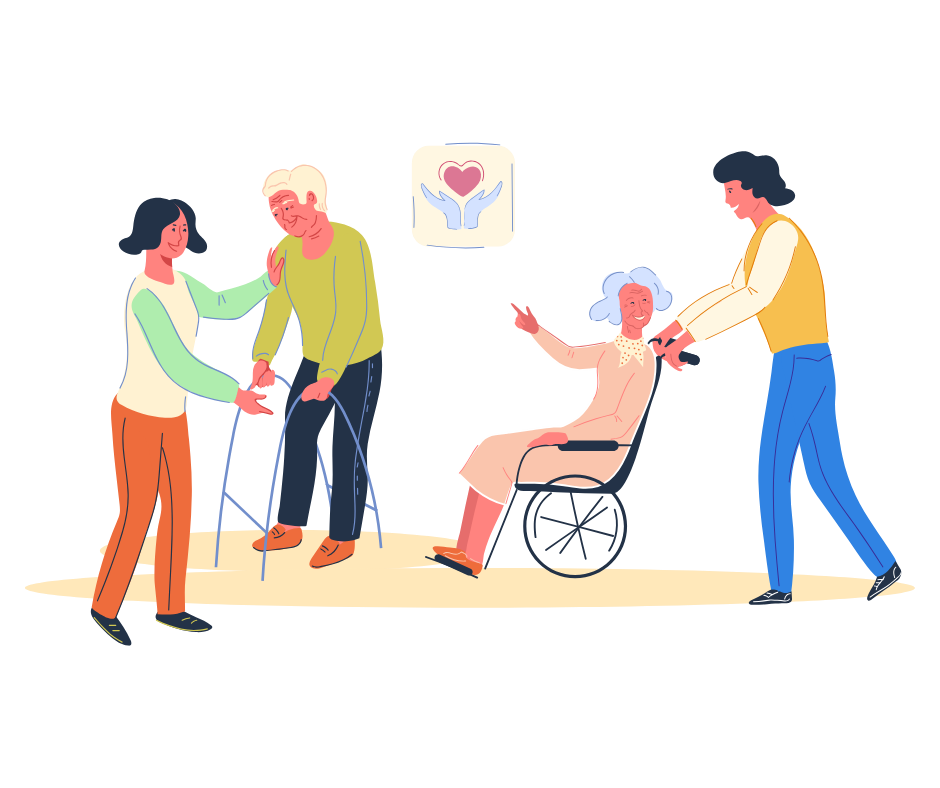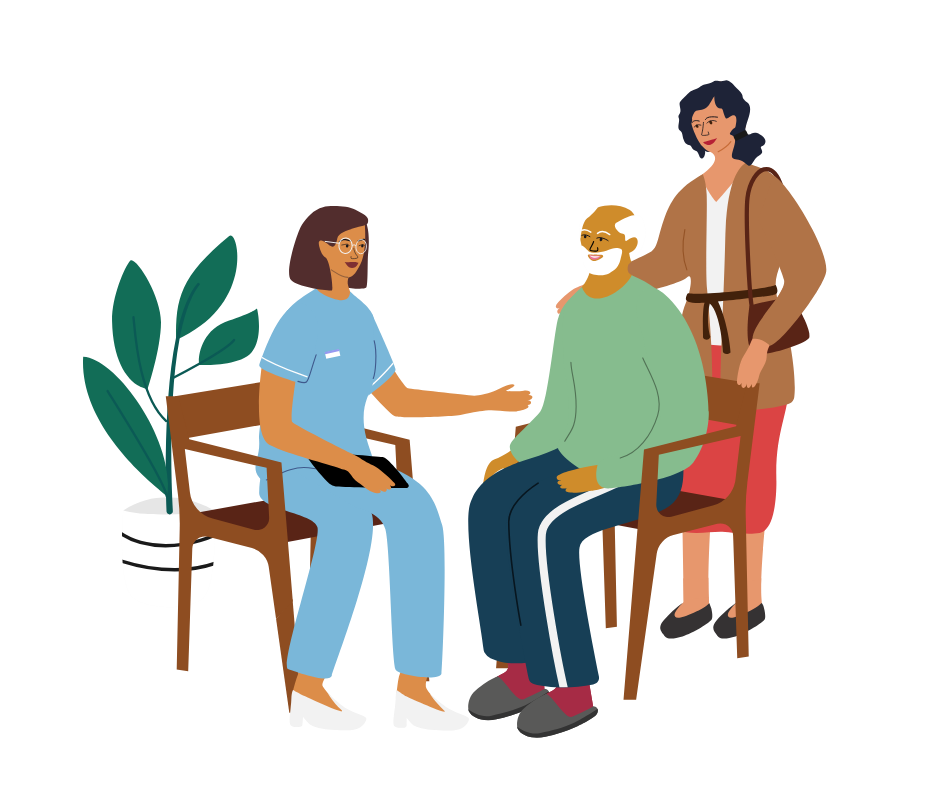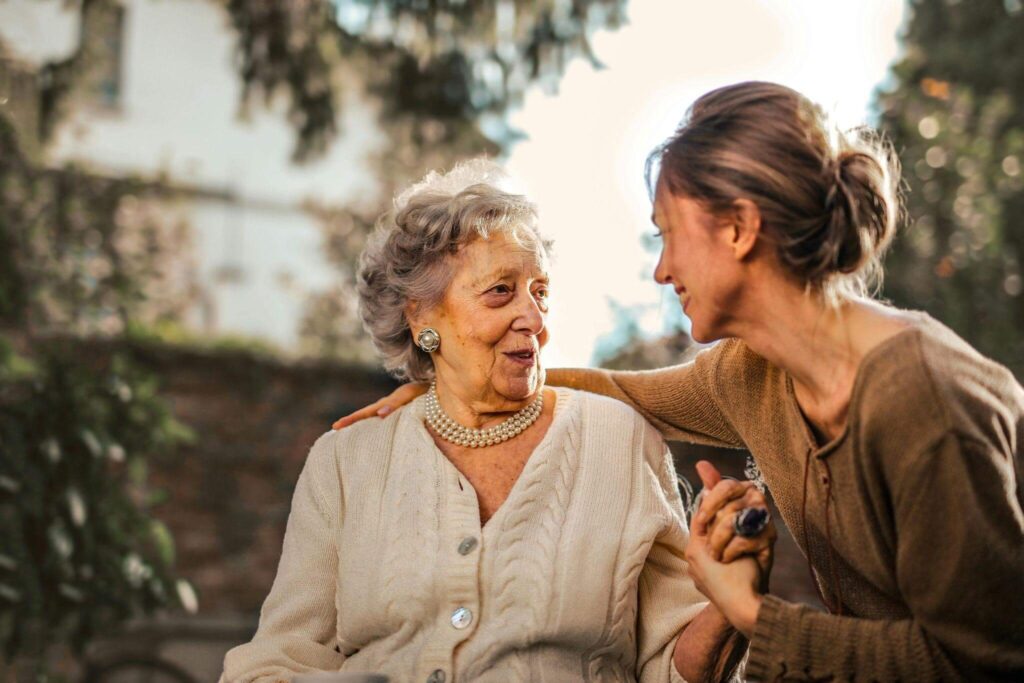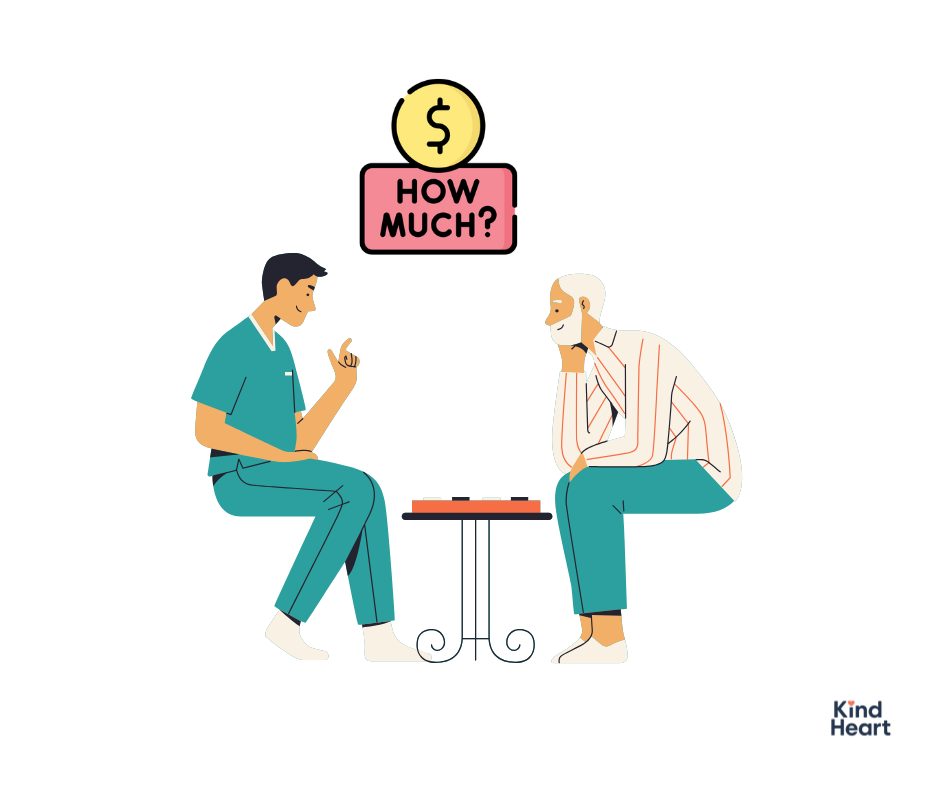At Kind Heart, we’re here to help you find the right kind of support. For most day-to-day needs, a kind, compassionate, and well-trained caregiver can make all the difference—whether it’s help around the house, companionship, or personal care. But if you or your loved one is recovering from surgery, managing a medical condition, or needs specialized health monitoring, a nurse may be the better fit. We’ll help you understand the difference so you get care that truly supports your well-being.

You might be asking yourself, “Do I need a caregiver or a nurse?” While the terms are sometimes used interchangeably, they refer to very different roles with distinct qualifications, responsibilities, and goals. Understanding the difference can help you make the best decision for your family’s needs.
What Is a Caregiver?
A caregiver, sometimes called a home care aide or personal care assistant, provides non-medical support to individuals who need help with day-to-day tasks. Caregivers are often trained but not medically licensed. Their primary role is to ensure comfort, companionship, and assistance with activities of daily living (ADLs).
Caregiver responsibilities may include:
- Helping with bathing, grooming, and dressing
- Preparing meals and assisting with feeding
- Light housekeeping and laundry
- Medication reminders (but not administering medication)
- Transportation to appointments or errands
- Providing companionship and emotional support
Caregivers are ideal for individuals who are aging, living with a disability, or recovering from surgery but don’t need skilled medical care. Their role is personal, relational, and rooted in helping people feel safe, seen, and supported in their own homes.
What Is a Nurse?
A nurse, whether a Licensed Practical Nurse (LPN) or a Registered Nurse (RN), provides medical care that requires clinical training and licensing. In a home care setting, nurses are responsible for monitoring health conditions, managing medications, and performing skilled medical tasks.
Home health nurse responsibilities may include:
- Administering medications and injections
- Wound care and post-surgical treatment
- Monitoring vital signs and chronic conditions
- Managing feeding tubes or catheters
- Coordinating with doctors and other medical professionals
Nurses are typically involved when someone is recovering from surgery, managing a chronic illness, or needs ongoing clinical care at home. These services are often ordered by a physician and may be covered by insurance or Medicare.

Key Differences at a Glance
|
Aspect |
Caregiver |
Nurse |
| Services | Non-medical Assistance | Medical care |
| Training | On-job-job or certified aide | Licensed LPN or RN |
| Scope | Help with daily living, companionship | Health monitoring, clinical treatment |
| Supervision | Typically agency-led or family-supervised | Physician-directed care |
| Insurance Coverage | Private pay, sometimes long-term care insurance | Often covered by Medicare or private insurance if prescribed |
Which One Do You Need?
Choosing between a caregiver and a nurse comes down to your loved one’s needs. Ask yourself:
- Does my loved one need medical treatment or monitoring at home?
- If yes, a nurse is likely required.
- Do they just need help around the house or with personal care?
- If yes, a caregiver is likely the better fit.
- Is emotional connection and companionship just as important as physical support?
- At Kind Heart, our Caregivers excel at building relationships and providing friendly support.
- Is this a short-term recovery or long-term support?
- Short-term post-op recovery may need a nurse first, followed by caregiver support for daily life.
Often, families find that a hybrid approach works best—starting with skilled nursing care and transitioning to caregiver support as medical needs decrease.
Why Kindness and Connection Still Matter
Regardless of who is providing care, the most impactful support is rooted in kindness, consistency, and trust. While skills and credentials matter, so do empathy, patience, and a genuine connection. At Kind Heart, our mission isn’t just to provide care—it’s to extend kindness so our clients can truly thrive. Whether you need a caregiver or collaborate with a nurse, we believe in relationship-driven support that feels human and heart-centered.
Final Thoughts
Deciding on the right kind of care can feel like a big decision, but you don’t have to do it alone. By understanding the difference between a caregiver and a nurse, you can take a thoughtful, confident step toward finding the support that truly fits your family’s needs.
If you’re still unsure, consider reaching out to a trusted care agency or healthcare provider to evaluate your loved one’s condition and help guide your decision.
Sources (APA Format)
Centers for Disease Control and Prevention. (2020, September 24). Caregiving for family and friends — A public health issue. https://www.cdc.gov/aging/caregiving/caregiver-brief.html
National Institute on Aging. (2022, August 10). What is long-term care? U.S. Department of Health & Human Services. https://www.nia.nih.gov/health/what-long-term-care
American Nurses Association. (2023). Nursing: Scope and standards of practice. https://www.nursingworld.org/
U.S. Department of Health and Human Services. (2021). Home health care. https://longtermcare.acl.gov/


